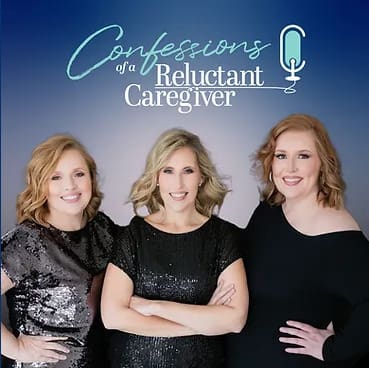
Here is One Thing We Can ALL do to Limit Cognitive Decline
My new book, Aging or Alzheimer’s, lists thirty-one “Potentially Modifiable Alzheimer’s Disease Risk Factors.” Hearing loss is one of the most broadly impactful of these, contributing to cognitive decline, dementia, loss of independence, and overall diminished quality of life. Also clear are the benefits of improving hearing (and vision) on cognition.
Found in 8% of dementia cases, hearing loss is linked to an increased risk of accelerated cognitive decline and Mild Cognitive Impairment (MCI), the stage immediately preceding Alzheimer’s disease. Hearing aid users were less likely to develop MCI and all-cause dementia when compared to those who were not using hearing aids. In a review that included more than 137,000 individuals who wore hearing aids or had cochlear implants, there was a 19% decrease in the risk of long-term cognitive decline and a 3% improvement in cognitive test scores in the short term.
———-
And there is another good reason to get your hearing checked:
Cognitive decline can masquerade as hearing loss!
———-
A suggestion✽:
Here’s one way to convince Mom, Dad, Grandma, or Grandpa to finally use those hearing aids currently retired to a dresser drawer: Simply point out that whenever an older person offers an apparently unrelated answer to a question, abruptly changes the subject, or withdraws from the conversation, many people will assume that they don’t understand—not that they can’t hear. Ultimately, we cannot draw conclusions about ourselves or anyone else until hearing, vision, and general health have been tested and treated.
References:
1.) Hearing aids reduced the rate of cognitive decline in older adults at high risk of dementia by almost 50% over a three-year period. From the National Institutes of Health (August 8, 2023): Hearing Aids Slow Cognitive Decline in People at High Risk, https://www.nih.gov/news-events/nih-research-matters/hearing-aids-slow-cognitive-decline-people-high-risk
2.) “Hearing Loss One of the Most Treatable Risk Factors for Dementia” From AARP (June 28, 2024): Available at https://www.aarp.org/health/conditions-treatments/info-2024/hearing-aids-dementia-report.html – :~:text=New report suggests hearing aids,hearing loss often goes untreated&text=Of all the risk factors,on Brain Health (GCBH)
3.) “Hearing Matters for Brain Health: Take Care of Your Hearing to Safeguard Cognitive Well-being” Global Council on Brain Health (2024). Available at https://www.aarp.org/content/dam/aarp/health/brain_health/2024-06/gcbh-hearing-report-english.doi.10.26419-2fpia.00108.001.pdf
4.) Yeo BSY, et al. Association of Hearing Aids and Cochlear Implants with Cognitive Decline and Dementia: A Systematic Review and Meta-analysis. JAMA Neurol. 2023 Feb 1;80(2):134-141.
5.) Lin FR, et al. ACHIEVE Collaborative Research Group. Hearing intervention versus health Education control to reduce cognitive decline in older adults with hearing loss in the USA (ACHIEVE): a multicentre, randomised controlled trial. Lancet. 2023 Sep 2;402(10404):786-797.
Originally Published on https://agingoralzheimers.com/
Kenneth Frumkin, PhD, MD, FACEP studied physiological psychology (the interaction of the body’s basic biologic mechanisms with behavior) in college and graduate school. He earned his Masters and Ph.D. degrees from McGill University for his work on the relative contributions of nature and nurture to the ingrained survival mechanism of poison-avoidance in rats. After two years of research at the U.S. Army’s Biomedical Laboratories, Ken went on to medical school and a residency in emergency medicine. His 36-year medical career was split between community hospital emergency departments and teaching, research, and practice in military academic medical centers.
Board-certified in his specialty, Dr. Frumkin is the author of over three dozen peer-reviewed publications and textbook chapters in psychology and medicine. His article “How to Survive the Emergency Room” published in the AARP Bulletin, was a 2022 National Mature Media Merit Award winner. A complete list of publications and complete resume are at www.linkedin.com/in/KennethFrumkinPhDMD . A Fellow and Life Member of the American College of Emergency Physicians and their Geriatric Emergency Medicine Section, Dr. Frumkin is also an Emeritus member of the Society for Academic Emergency Medicine and their Academy of Geriatric Emergency Medicine. Having retired as a civilian employee of the Department of the Navy in 2017, Dr. Frumkin is currently a volunteer member of the academic faculty at the Emergency Medicine Residency, Naval Medical Center, Portsmouth, Virginia.
Dr. Frumkin writes from the perspective of a practiced author and researcher and, most importantly, as a fellow boomer with “skin in the game.” He, too, is seeking the answers to nearly every older-person’s questions about their fluctuating memories and the possibility of progressive cognitive decline. His book "Aging or Alzheimer’s? A Doctor’s Personal Guide to Memory Loss, Cognitive Decline, and Dementia" comes out November 5, 2024. (AgingOrAlzheimers.com)














































BabyBoomer.org is an online membership community created by and for the Baby Boomer Generation. Boomers, and those who service and support them, are welcome to join our community accessing all general topics.
Notifications
